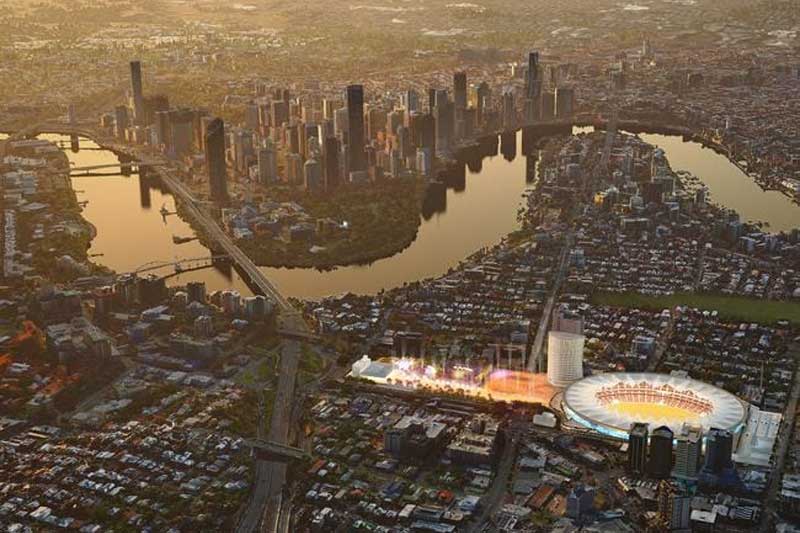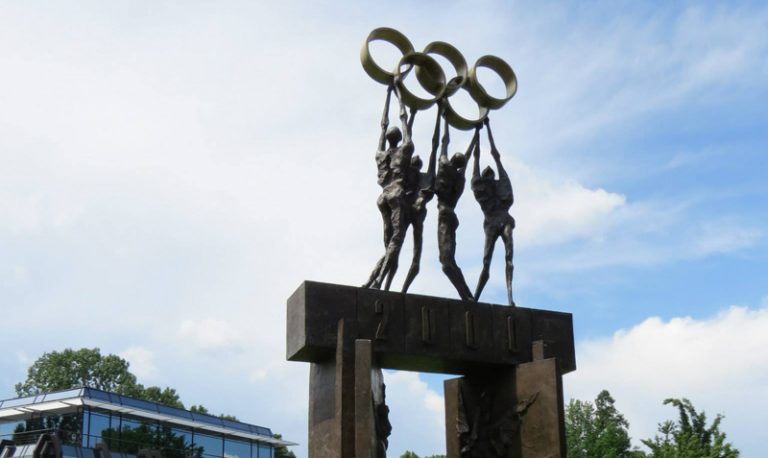
It was no surprise to me that ‘Denver’ was the very first word in The Guardian report about the demise of the Gabba project, the Brisbane Cricket Ground replacement once intended to be the centerpiece of the 2032 Olympic Games, now considered dead.
Yes, Colorado’s Denver – in the United States – almost 13,000 km away. Regular readers might already know that Denver is synonymous in Olympic circles with ‘buyer’s remorse’. But if you’re a newbie here Denver is infamous for the time – the only time in Olympic history – that a city won its bid to host the the Games only to return it to the International Olympic Committee (IOC) unhosted.
Citizens had balked at the planned costs for organizing the 1976 Winter Games and in 1972 the state lost a referendum to approve public funding of the event. The Games went instead to Innsbruck, Austria where it had been held eight years earlier.
Denver is typically referenced when regions that are bidding for the Games face public opposition, but usually not after the host contract is signed and delivered as it was in the Mile High City. That’s what makes Brisbane the most Denver-ish of all.
In its report the British daily suggested that there is ‘genuine concern’ that financial issues might turn people against Australia’s third Games.
If so, it’s the IOC who is at fault. The good news is, the IOC can fix this. The bad news is, it may be too late for Brisbane.
To reel in the bid process that had become a cost prohibitive, battle royale style contest where an eclectic membership of over a 100 power brokers vote for the winner – the IOC Executive Board (EB) reformed the rules in 2019. A small Future Host Commission (FHC) is now tasked with engaging interested parties and finding mutual hosting opportunities. Once a potential match is found, the FHC makes its recommendation to the EB.
If the EB agrees, the decision is sent to the IOC’s all-members session for a rubber stamp approval. Brisbane 2032 was the first Games to be elected under the new process.
While effective in reducing the cost and complexity of bidding for the Games, and eliminating the stigma felt by nations that lose the high-profile campaigns – the process is failing in other ways.
A significant part of the reforms amount to a complete loss of transparency. The IOC keeps all engagements with interested bidders confidential until a single region is named ‘preferred host’, then only needing to pass some due diligence before the election is formalized. Bidders can publicly divulge any information they want, but they are not required to do so.
Brisbane had been the frontrunner to host the 2032 Games due to its early start in the race and the COVID-19 pandemic that slowed the progress of other potential candidates. But former rules dictated that elections were to be held about seven years ahead of the opening ceremony, so 2025 for the 2032 Games – a rule that was bent only when Los Angeles was awarded the 2028 Games 11 years ahead as part of a double-allocation with Paris 2024. So there was no rush to move on 2032, especially during the chaos of the global health and financial crisis.
But under the cover of the pandemic distraction Australian government officials, the Australian Olympic Committee (AOC) and the IOC came to an agreement and the latter made the surprise announcement in February 2021 that Brisbane was chosen as the preferred candidate to host the Games, meaning the Queensland capital would be elected barring any significant obstacles during due diligence. The news had been leaked to Olympic industry media a day earlier, but other than that it was the most unexpected de-facto host city announcement in at least 100 years.
It caught almost all stakeholders by surprise including national Olympic committees, the Olympic specialized media (including myself), and most importantly – Australians, especially those in Queensland. Opposition to the project had been organizing, but they would have been unprepared for the stealth timing of the decision.
So much was done to keep the momentum of the project from prying eyes (i.e. taxpayers) that city council only approved the project at a meeting after the announcement was made.
At the time, I wrote extensively about the depth of the years-long plan for Brisbane to host the Games. Australian IOC Executive John Coates began developing plans for an Australian bid as early as 2016 with a feasibility study, then in 2019 he was the architect behind the new bid process that was designed to give the Executive Board almost total control over the host city selection process. Coates was Vice President of that board from 2013 to 2017 and then again starting in 2020. The IOC claimed Coates was uninvolved in the selection process to avoid the conflict of interest but that didn’t stop him from arranging meetings between the Australian Prime Minister and IOC President Thomas Bach.
BidWeek: The IOC thought they could steal the Brisbane 2032 Olympics and hoped we wouldn’t notice
To be clear, this was an election that was orchestrated among top officials in Australia and at the IOC, and without properly consulting the people of Queensland who probably never saw this coming until it was too late. At a time when there has been so much public pushback against risky mega-events around the world, working with the host population should be priority one for the IOC.
It must be noted too, that it was John Coates who last week urged state officials to abandon the AUD $2.7 billion (USD $1.76 billion) stadium plans and use existing facilities instead. The IOC opposes costly projects being built in the name of the Olympics, to avoid the negative backlash of budget blowouts and white elephant legacies that taint the Movement.
But once elected, host governments are typically empowered to add on projects to serve other interests as well, such as the Gabba and Brisbane’s need for an updated cricket and football pitch. This should further underline the need for clear and open discussions before the Games plan is locked in.
There is a significant recent precedent to this risk. In 2022 Australia’s state of Victoria was awarded the 2026 Commonwealth Games after rushed negotiations and very little public consultation. Due to delays, the COVID-19 pandemic and a resulting lack of candidates, the Commonwealth Games Federation (CGF) rushed to award the Games to the region while there would still be time to prepare. But plans and budgets weren’t well vetted or communicated and ultimately state officials pulled the plug on the event, claiming costs would be more than double original estimates.
With about two years to go, the CGF is still in the hunt for the next host of its Games.
The failed Gabba project is an initial stumble for organizers, but enough to raise concerns for taxpayers who are already struggling with inflation and other economic issues. It will at least confirm that initial planning and budgets surrounding the Games are flawed.
Where were the detailed plans and analysis before Brisbane was named preferred host?
For Brisbane, the IOC and organizers should jump in with robust public consultation now while there is still time to recover – especially in the unlikely case that the IOC needs to shop elsewhere for a replacement host.
For the future, a more transparent dialogue must return to the bid process in order to avoid the Denver syndrome.
It seems though, the IOC still hasn’t received the message.
The next edition likely to be organized under the new rules is the 2030 French Alps Winter Games. After a campaign lasting only about five months with no published budget, few details and little public consultation, the French bid was named a preferred candidate and is set to be elected in Paris ahead of the Summer Games in July.
IOC officials claim several regions are now involved in private discussions around hosting the Summer Games in 2036 and beyond. Only India and Germany, the latter setting up a public feedback tour to gauge community interest, have been very open with their plans.
The identities of the remaining interested parties and possible election timelines remain unspoken, and the IOC has refused to answer any questions in this regard.
This needs to change.
The IOC wants to choose its partners based on the interests of the Olympic Movement, and not based on the personal interests of its 100-or-so members who formerly chose from among the candidates. That’s clear, and that makes sense. But is that what’s happening? Was the opaque election of Brisbane the best move for the Olympics?
The IOC needs to bring the transparency back.
If not, you’ll be reading that Denver backstory a lot more in the future.


